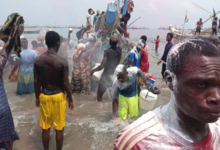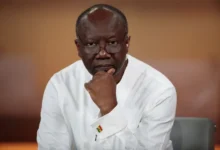
The Ministry of Finance has approved the disbursement of the over GH¢4 million to settle the debt of the Korle Bu Teaching Hospital (KBTH) Renal Unit Outpatient Department, the Health Minister, Kwaku-Agyeman Manu, has said.
To avoid the future indebtedness of the unit, Mr Agyeman-Manu said there were considerations to possibly include the treatment of renal related ailments in the National Health Insurance Scheme.
Mr Agyeman-Manu made these known in an answer to an urgent question asked of him in relation to the state of the renal unit of the hospital.
The Member of Parliament for Juaboso, Kwabena Mintah Akandoh, early this month called the attention of the House to the increasing cost of the renal treatment in the country and the closure of the unit prompting the House to summon the minister.
According to the minister, the consideration would include granting subsidies based on proposals received from KBTH as well as the possible review tariff to ensure sustainability of the service.
The unit caters for between 260 and 300 patients daily and conducts over 2,000 dialysis a month at the cost of GH¢380 per session.
In view of the rising cost of renal cases and increasing patient numbers, Sky Group of Companies, a Ghanaian firm, he said, has committed to pay GH¢1 million every quarter to cover the cost of 230 patients.
He said as part of the non-communicable disease roadmap, the ministry and its agencies would continue to raise awareness for the prevention and early detection to reduce renal disease and minimise the burden on renal unit on the health sector.
“When released, the total cost of care and the need for dialysis will be brought to the barest minimum,” he stated.
Government, he announced, has plans in place to construct a 100- bed urology and neurology centre of excellence at the hospital by the end of the first quarter of next year.
This intervention, he said was aimed at facilitating the provision of kidney transplant services among others in the country.
In the estimation of the minister, when the facility comes on stream, it would help reduce the dialysis burden on the nation and the need for Ghanaians to travel abroad for renal treatment.
A local team trained to provide renal related services at a reduced cost, he said has already undertaken the first kidney transplant successfully in the country.
This intervention, he said, was in line with government’s vision and commitment to make Ghana the centre of medical tourism in the West Africa sub region.
BY JULIUS YAO PETETSI







